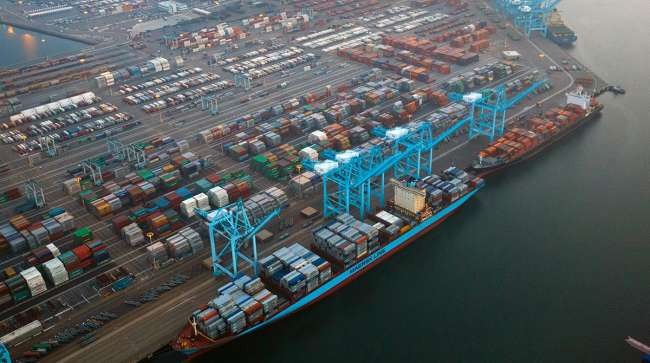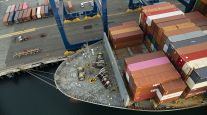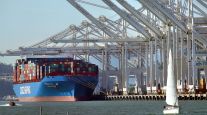Cargo Owners Face 2.3% Increase in PierPass Fee at West Coast Ports Aug. 1

Cargo owners will soon pay more to have trucking companies pick up their containers after the West Coast Marine Terminal Operators Agreement announced a 2.3% increase in the PierPass fee effective Aug. 1.
The 13 terminal operators at the two Southern California ports will now charge $72.09 per 20-foot-equivalent unit, or TEU, and $144.18 for a 40-foot container picked up between 3 a.m. and 6 p.m. The traffic mitigation fee is not charged in the evening because the goal of the charge is to encourage more trucking companies to avoid traveling to the terminals during rush hours for commuters.
In August 2015, the traffic mitigation fee was raised to $66.50 per TEU, and last August the fee went up to $70.49 per container.
Under Rule 7 of WCMTOA’s Marine Terminal Schedule, the PierPass fee gets adjusted annually “to reflect increases in labor costs based on Pacific Maritime Association maritime labor cost figures.” The maritime association negotiates and administers labor agreements with the International Longshore and Warehouse Union.
Thus, since a 2.3% combined wage increases and assessment rates paid to longshoremen begins July 1, the PierPass fee was set to pay to offset the higher costs.
“According to an analysis by maritime industry consultants SC Analytics, the net costs incurred by the terminals to operate the OffPeak shifts in 2016 totaled $224.7 million. During that year, the terminals received $182.7 million from the [traffic mitigation fee], offsetting about 81 percent of the OffPeak program’s costs,” PierPass announced.
But the trucking community continues to view the PierPass fee skeptically.
“To propose yet another increase to the [traffic management fee] at a time when the outcry has been how onerous the cost of the fee is should be considered outrageous,” said Weston LaBar, executive director of the Harbor Trucking Association. “Actions such as these continue to show there is a disregard for the [cargo owner] and trucking communities and should be cause for concern on whether the current administrative model of the off-peak program is the right model or not.”




